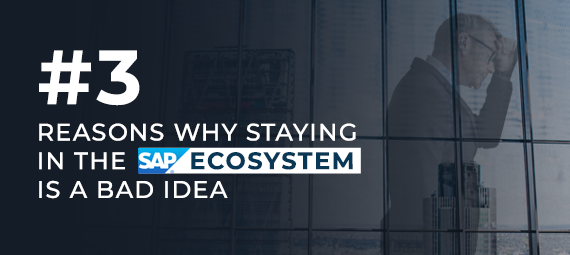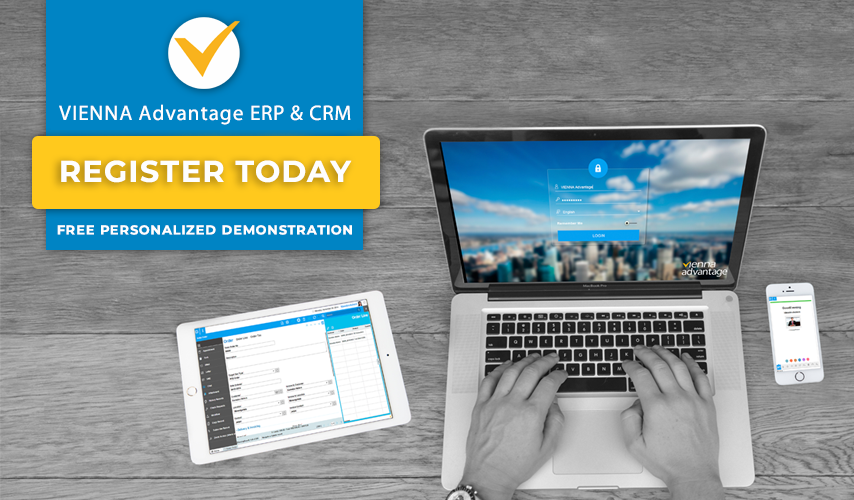
The SAP ecosystem consists of a long list of partners, software vendors, and others who contribute to the SAP platform. As an SAP customer, you’re dealing with several entities within the SAP ecosystem on a daily basis. While running a business several changes are bound to arise, ranging from relatively small changes to business processes to large ones such as mergers and acquisitions. Assuming you are within this very ecosystem or considering entering it, let’s analyze what impact these changes will have on your SAP environment.
#1 The SAP ecosystem brings a significantly higher Total Cost of Ownership (TCO)
In the event of a small change in the business process, an enhancement to the standard SAP customization will be required. The cost involved in carrying out such changes could be in the tens of thousands of dollars, depending on the region you operate out of. If we extend this argument to relatively large changes in your business, the cost impact on your SAP environment could potentially run into several million dollars. The bottom line – remaining in the SAP ecosystem translates to a significantly higher Total Cost of Ownership (TCO). So, the question is, are these high costs justified?
#2 No freedom of choice
A company like SAP enjoys a kind of market dominance where they can unilaterally dictate terms to their customer community. A case in point: the enforced HANA reimplementation for existing SAP ECC customers. SAP announced it will no longer support SAP ECC beyond 2027. Anyone who is currently on the platform will have to move to SAP S/4 HANA. While SAP calls it a ‘HANA upgrade’, it is not quite as simple as that. Instead, it involves a completely new implementation in itself. Despite having customer advocacy groups, such as the ASUG, as a customer your bargaining power over a dominant vendor, such as SAP, is almost non-existent. In many cases, SAP’s service partners exert as much influence on power as does SAP, if not more.
SAP customers are right to feel angry because they are pressured into giving up their existing ERP system and move on to another, just because SAP can use this to grow its business. Although S/4HANA may offer some advantages to its users, it should be the customer’s choice whether to move, after evaluating those advantages against the disruption.
As SAP stakes its future business on the success of HANA and its various cloud initiatives, there appears to be a disconnect between its marketing message and the customer reality. One thing is clear: there was no SAP customers in the Nucleus Research that think of “SAP” and “simple” in the same sentence. Across its product portfolio, SAP has a lot of work to do to convince customers that their future will truly be better and simpler with SAP.
In an era of software democratization, does it still make sense to stay in the SAP ecosystem?
#3 SAP implementation projects last longer
A direct consequence of the above 2 points manifest in the SAP project implementation phase. A typical SAP implementation projects such as the ‘HANA upgrade’ run for several years. Take Lidl for example. The German grocery retailer pulled the plug on their SAP ERP implementation after 7 long years and bearing a loss to the tunes of $500 million. The risk of failure increases with the length of the project. The commercials of the SAP service partners are structured in a way that incentivizes implementation partners to prolong the implementation instead of concluding them rapidly. The incentives are misaligned and your business risks increase by staying in the ecosystem.
Becoming a part of the SAP ecosystem seems to bring more problems than the they solve, doesn’t it? Makes you wonder if it is at all worth it!
Could enterprise open source ERP solutions be a serious alternative to the SAP ecosystem?
Loud and clear: YES! Enterprise open source solutions have evolved greatly over the past decade and now offer a serious alternative to proprietary solutions.
Today, proprietary ERP solutions, like SAP, provide fewer options, less freedom and higher maintenance and license costs. Luckily, there are a few enterprise level open source ERP solutions that really excelled their product offerings and have become a serious competitor to the proprietary EPR solutions. One shining star in the enterprise open source ERP market is VIENNA Advantage, an enterprise level open source ERP with inbuilt document management system and powerful business intelligence.
The company has received numerous awards and recognitions in the past few years, to name a few: “Most innovative ERP solution” awarded by Initiative Mittelstand, “2121 High Performer” awarded by G2.com, “20 Most Promising Open Source ERP Solutions in the World” recognized by “The ERP Insights Magazine” and others.
But maybe the highest acknowledgement for the company is the number of successful SAP replacement projects they’ve recently done at: oil and gas company from Middle East, publicly listed diversified business and a cable manufacturer in Malaysia, consulting services provider from Kenya, health care equipment manufacturer from Germany, etc.
Today, more and more large corporations are exploring enterprise level open source ERP solutions as an alternative to the proprietary ones. VIENNA Advantage is the industry leader pawing the way for the other contenders.
